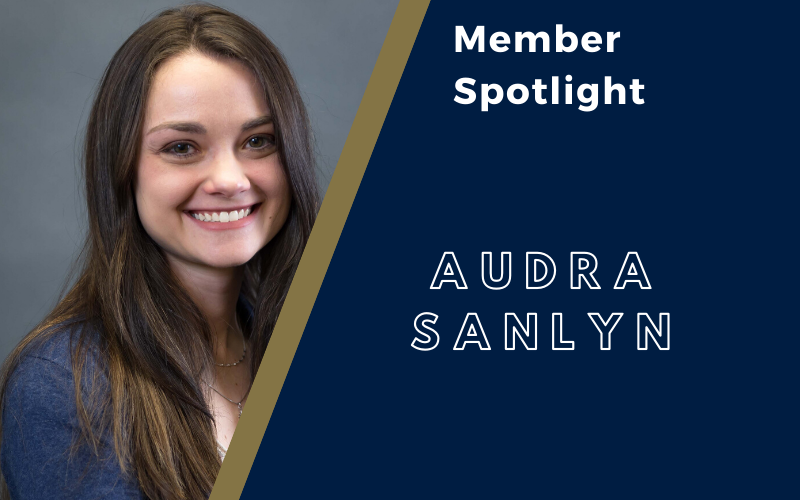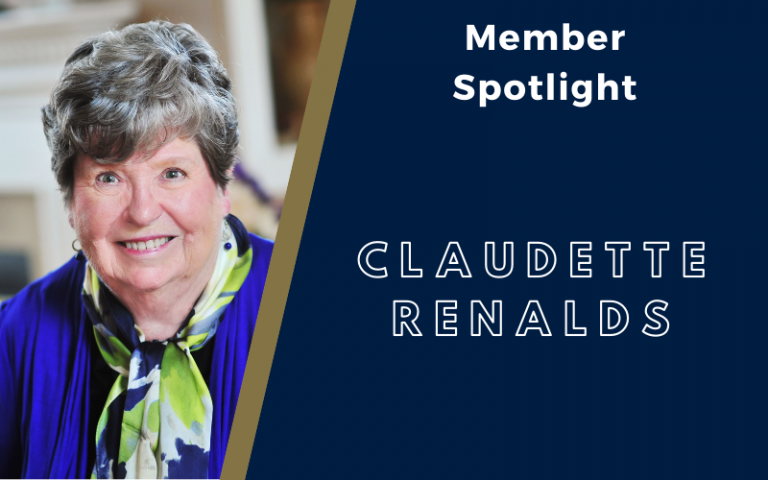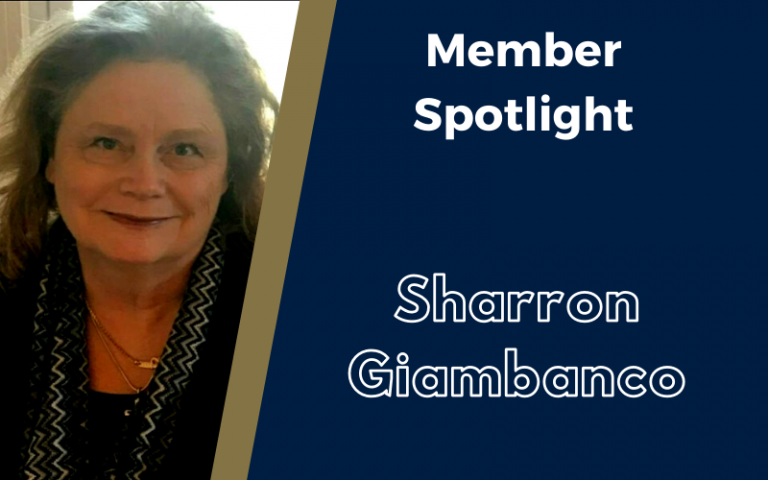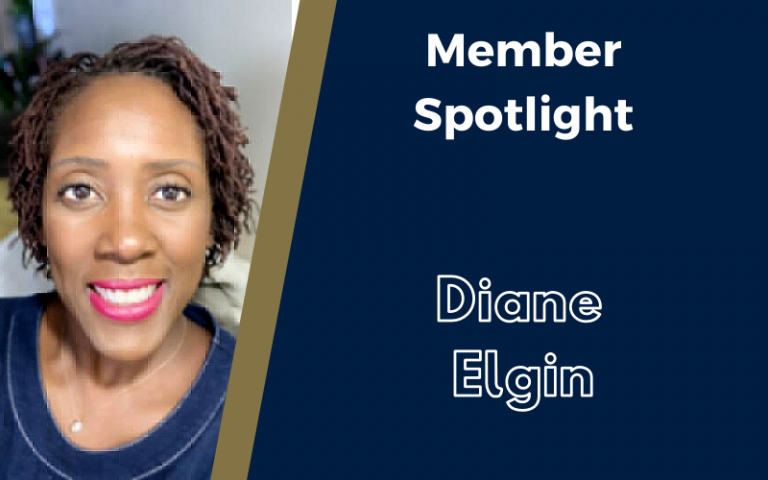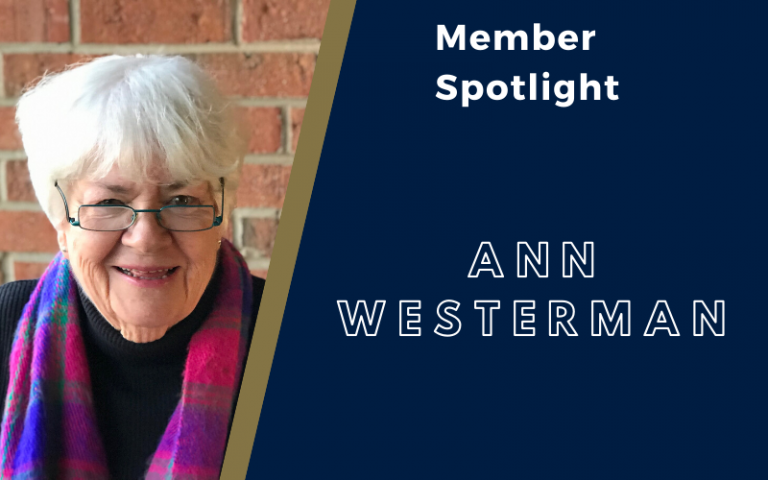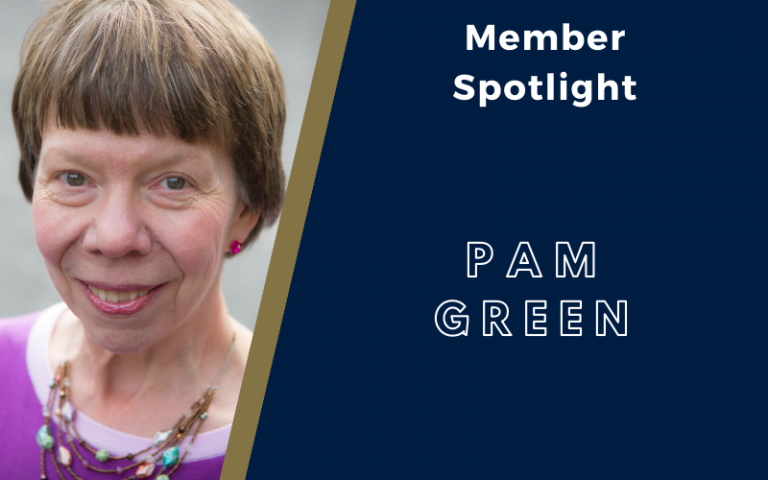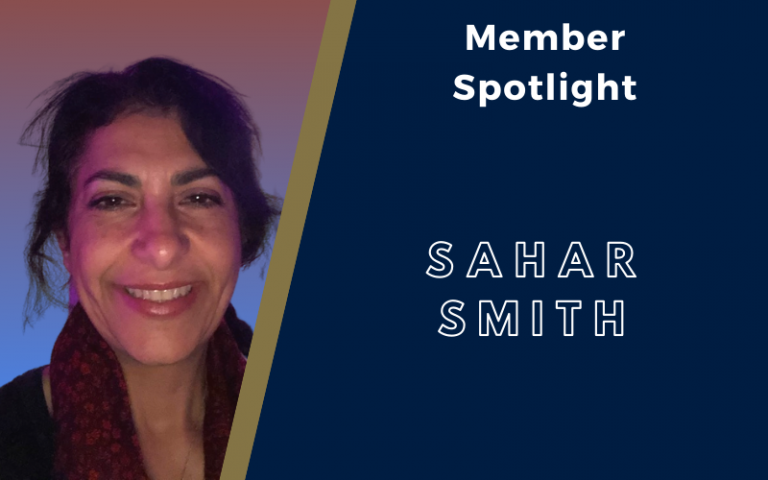Member Spotlight: Audra Sanlyn
What type of writing do you do? And are you traditionally published or self/indie published?
Audra : I write Women’s Fiction as well as a monthly encouragement blog. Through the Eyes of a Veteran: A History of Winchester, a local history/memoir based on the life of my husband’s grandfather, was self-published in 2016. My recent Flash Fiction work entitled 1982 takes a glimpse into the life of Lisa, a minor character in my current work in progress, Impact. 1982 is currently available as a free download for my subscribers. I am planning to pursue traditional publishing for Impact.
What inspired you to begin writing?
Audra : I began writing in 2011 at the suggestion, (or rather insistence) of my husband after he was subject to a week-long rant about a plot idea. Though I hadn’t previously considered writing full-time, I fell in love with the art of storytelling.
Do you schedule the time or write when the Spirit moves you?
Audra : Our kids are ages seven and two, and when I’m not watching them, I assist my husband as youth leader in our church and volunteer for Foster Friends, a local coalition that helps foster families. So, as I’m sure many of you can relate, I don’t have any sort of writing schedule. I write in snippets: twenty minutes here, fifteen minutes there. Google Drive is essential, and I keep current small projects, like blogs, uploaded, so if an idea pops in my head while we’re playing in the backyard, I can put it in writing.
What are your favorite resources for writers and why?
Audra : NanoWrimo (National Novel Writing Month) is a great way to kick-start a novel. For those who may not have heard, this online group of writers from all over the world sets a goal to write 50,000 words in the month of November. You can track your word count on their website, make “friends” who keep you accountable, and follow their Facebook group. They offer word sprints and motivational tools to help you “win” Nano. Writers form smaller groups, as well, based on genre and audience.
When do you bring in outside help? Beta readers or street team? Editors? Book/cover designers? Marketing help?
Audra: The Scribes critique group in ACFW (American Christian Fiction Writers) has been invaluable. They also have multiple email loops and Facebook groups you can join to ask any writing-related questions or acquire feedback. I’ve learned so much from this group of like-minded authors. CCWF provides amazing networking opportunities through meetings, webinars and small fellowship and critique groups. I’ve grown to love this collaboration of hard-working, passionate writers.
Once the hardcore editing is finished, beta readers allow for great insight from avid readers who can offer feedback to help you relate to your audience in a more personal way. I would avoid having other writers beta read for you because they’ll be tempted to line-edit your work and overthink it. Because we tend to do that, right? Readers within your genre will give you feedback based on their expectations which will allow you to connect with your audience on a deeper level. If your story contains difficult or diverse topics, it’s also helpful to allow sensitivity readers to look over the manuscript, or even a portion of it. For example, I’ll be searching for sensitivity readers for Impact to make sure my portrayal of abortion and its side effects are painted in a true light and in a way that won’t be hurtful to anyone who may have been in this situation.
What is your writing dream?
Audra: I write from a pro-life platform, and some of my blog posts, as well as my current work in progress, highlight the importance of standing up for the rights of the unborn. My goal is to bring awareness to this travesty, and in the words of Abby Johnson, to “make abortion unthinkable.” When we express the truth in love, God can use our words to turn hearts and minds toward him. If Impact saves one life or softens the heart of one person, my dream for the novel will be complete.
What would you most like to share with other Christian writers?
Audra: Whether you’re writing fiction or non-fiction, I believe in allowing life to fully infiltrate our work. So many aspects of this profession point us toward separating life from writing, both literally and figuratively: Keep the first-grade worksheet out of my pile of papers. (Oh, and the gummies, too.) Follow these formatting standards. Set aside a specified time every day to write.
These are all well and good, but life’s messy. Allow the craziness in, because sometimes the best and most meaningful inspiration comes from watching a math concept click in your son’s mind. Or listening to the hum of tires on pavement. Or laughing at your toddler chasing bubbles. Allow it all to seep in and write it down as it happens, because God can use anything. Yes, even smashed up gummies. To elicit a laugh, stir an emotion. Because He can turn even the most mundane of tasks into a beautiful work of art—one that will entertain, inspire, and bring others closer to Him.
He hath made every thing beautiful in his time: also he hath set the world in their heart, so that no man can find out the work that God maketh from the beginning to the end. Ecclesiastes 3:11 (KJV)

Jenn Soehnlin is the author of Embracing This Special Life. She serves as social media/marketing manager for CCWF. Jenn enjoys blogging about faith, writing, praying Scripture, and special needs parenting at www.embracing.life.
https://www.audrasanlyn.com/
https://www.facebook.com/audrasanlyn/
https://twitter.com/AudraSanlyn

